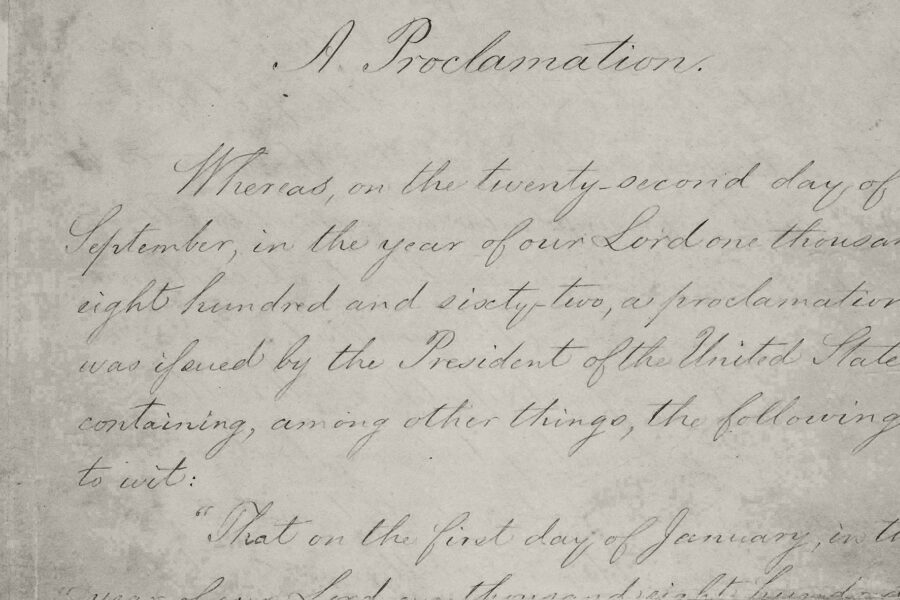Words have power. This might be easy to forget in our day-to-day conversations with family and friends. We might not think much about the words we use and the impact they have on others when we’re just writing matter-of-fact emails or sending pithy texts.
It is when we sit down to discuss a favorite book – either in a classroom setting or among fellow book enthusiasts – that we realize just how effective a few well-chosen words are. They can set a scene, evoke a distant but familiar emotion, and move us to action.
This is part of what makes the study of literature and creative writing so essential. It reveals to us how we can take a practical tool we use daily, our written language, and transform it into something that illuminates, teaches, and inspires.
In this article, we will explore in great detail why the study of literature and creative writing is so valuable:
1. Literature Teaches Us About the Human Condition
Whether you lose yourself in an ancient epic poem or a sweeping contemporary novel, you will likely come to the same conclusion as you get to know the characters: certain human traits span generations. Sure, the world is quite different now than it was in the 8th century when Homer composed The Odyssey. Still, even if we can’t relate to Odysseus and his formidable interactions with gods and mythical beasts, we can understand his voracious appetite for glory, and his headstrong personality.
More importantly, literature reminds us what can happen if we give in to our more dangerous innate desires. You may recall from past English classes the many conflicts that plague protagonist after protagonist: man versus machine, man versus man, man versus nature, man versus self. No matter the plot or setting, it’s always man that’s left fighting. This is unlikely to change anytime soon, but literature distills these conflicts into moments we can pore over, analyze, and savor. In doing so, we can better understand why we succumb to such conflicts and what we can do to preserve ourselves and the world around us.
2. Literature Teaches Us How to Empathize With Others
To expand upon the first point, literature exposes us to many places we may never see and situations we will likely never experience first-hand. Obviously, we’ll never get to tour the Underworld like Dante and Virgil in Inferno. We’ll never experience the towering lighthouse or the sea that rages beneath it exactly as the Ramsays had in Virginia Woolf’s To the Lighthouse.
Even so, we can experience these journeys and moments as human beings, just by reading them for ourselves. We can feel the same horror, shed the same tears, and behold the beauty of the same wonders. We just have to do it from the comfort of a couch or desk.
A 2006 study conducted by psychology professor Keith Oatley at the University of Toronto found that people who read a lot of fiction tend to score better on tests that measure empathy and emotional intelligence. While researchers are still working to better understand the link between empathy and regular reading, we can reasonably conclude that our favorite books stir something within us, something that feels uniquely human.
3. Writing Helps Us Break Down Barriers
Now that we have touched upon why studying literature matters, we should explore why the act of writing itself is so important.
To put it simply, writing allows us to escape our confines to connect with others. Everyday life does not always grant us these freedoms. We must begin every morning ready to go through the motions, share small talk with colleagues, maybe even a tepid handshake or half-smile. In doing so, we may be forced to overlook the world in all its chaos and injustice.
When it comes to writing, though, the only things that separate us are the words we hold back. Sometimes, withholding certain details makes sense. With creative writing, you decide how to bridge the gap between yourself and the world and what paths you want to lead your readers down. You choose how to break barriers–either with force or with gentleness. What matters is that you break these barriers and invite your readers inside.
When you study writing, you learn how to do these things without isolating people or drawing them further away. Instead, you learn how to beckon them closer.
4. Writing Allows Us to Share New Ideas With a Wide Audience
So, the barriers have come down. You have at last heard your own voice without these walls standing in the way, and you recognize it as something you want to share. How can you share this information in a fair, balanced manner while still engaging your audience?
Another wonderful thing about writing is that you can make unpleasant truths and sobering facts more palpable simply by choosing the right words and organizing them in a way that makes sense for your audience. For example, the creative narrative about sustainable energy that you write for high school students will look quite different from the research essay that you turn in to your Ethics professor.
Learning how to present important information to many different types of audiences takes practice. Once you master this skill, you will find it valuable not only as a scholar but also as a creative, future employee, and human being who likes to share uncommon knowledge. Studying writing teaches you how to synthesize research, and how to use it to inform and inspire people who might otherwise overlook it entirely.
Literature and Creative Writing: An Unstoppable Duo
In sum, good writing stands the test of time. In many ways, a classic novel or timeless poem is like some unmovable natural wonder, like an untouched expanse of forest or an echoing canyon: no matter how many people approach it over several years, there is always the chance of seeing in it something new. At the very least, you can experience what so many before you have experienced and appreciate that experience in the context of your own life.
Creative writing is similar, in that you get to make use of the same language that so many before you have shaped, reshaped, broken, and mended. Some words are well-worn and appear in novels and poems again and again. Think: love, soul, darkness, light, shadow, rose, sun, moon, joy, despair. That said, just because so many writers approach these words with reverence does not mean that you cannot find a place for them or words like them. Like literature, it is your own experiences that grant these words color, context, and life.
Studying both literature and creative writing can help you unearth these experiences.
Creative Writing and Literature at Antioch University
The celebrated poet, and Antioch University Faculty, Victoria Chang envisions a writing world in which collaboration, generosity, and mutual aid are regular features. In both her life as a writer and in her role as chair of Antioch’s MFA in Creative Writing program, Victoria embodies these qualities, which together she calls “literary citizenship.” And she inspires her students to do the same. Discover the conversation in The Seed Field Podcast and explore how building a more inclusive writing community benefits everyone.
Master’s and Bachelor’s Programs

Expand Your Knowledge as a Literary or Dramatic Artist
The low-residency MFA in Creative Writing program at Antioch University is built for working professionals and structured to mirror the lives that professional writers actually live. Focus genres include creative nonfiction, fiction, playwriting, poetry, young people, or writing for the screen.
Earn Your Bachelor’s and Find Influence in Written Language
With programs on-campus and online our flexible courses fit your schedule. Antioch University’s bachelor’s degrees offer a number of concentrations to support your writing career goals: Literature and Creative Writing, Professional & Creative Writing, Applied Arts & Media, Communication and Media.






